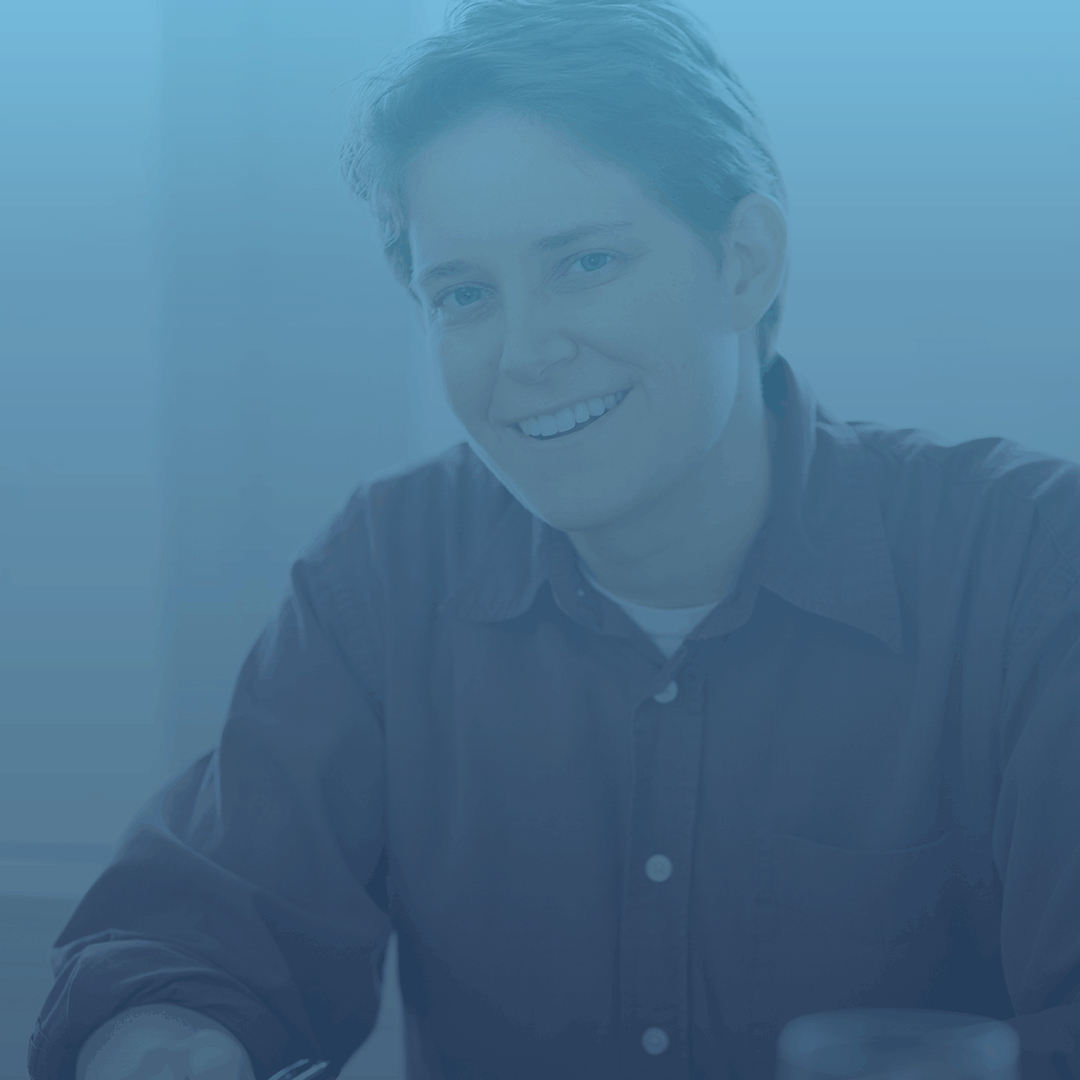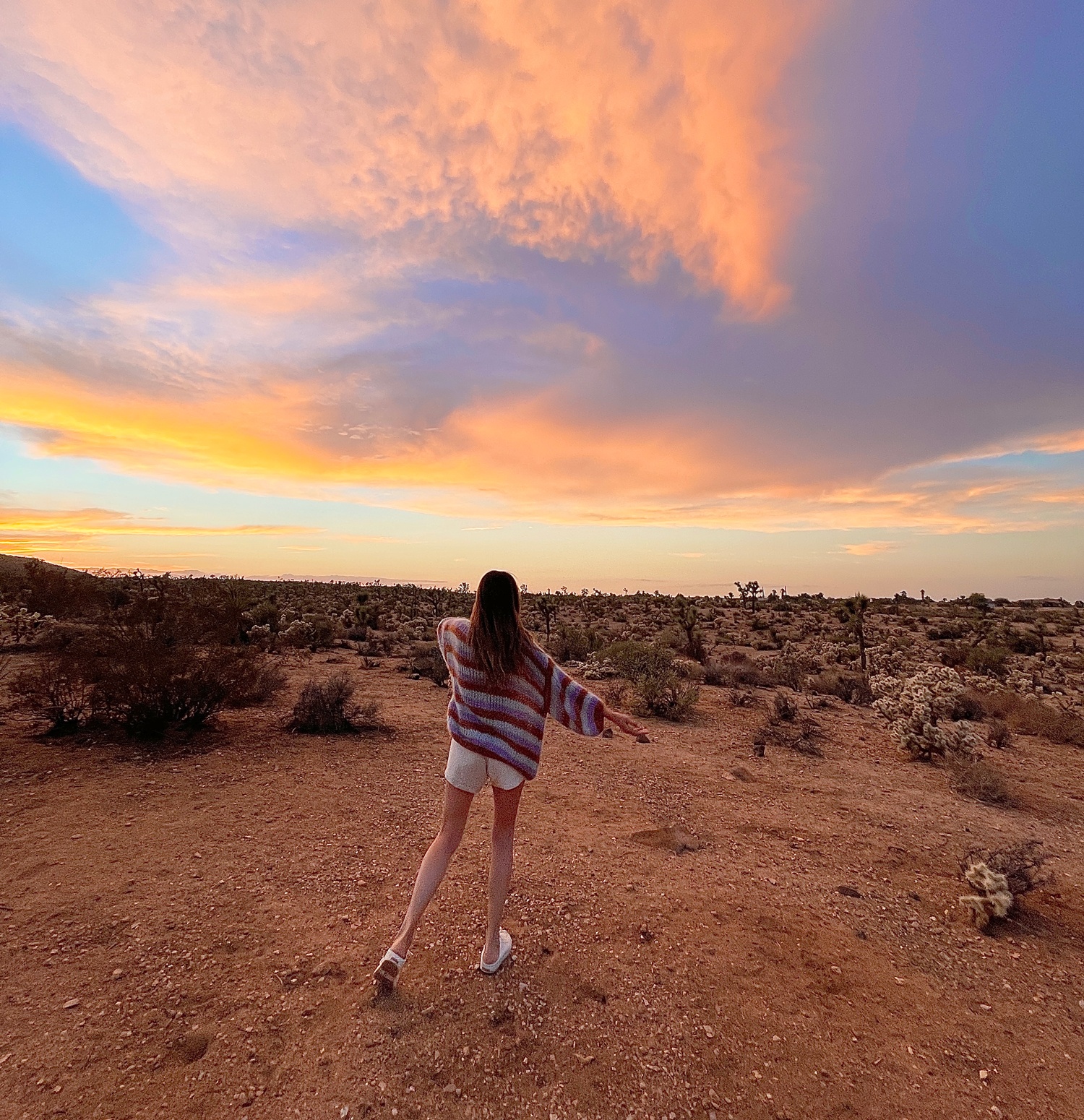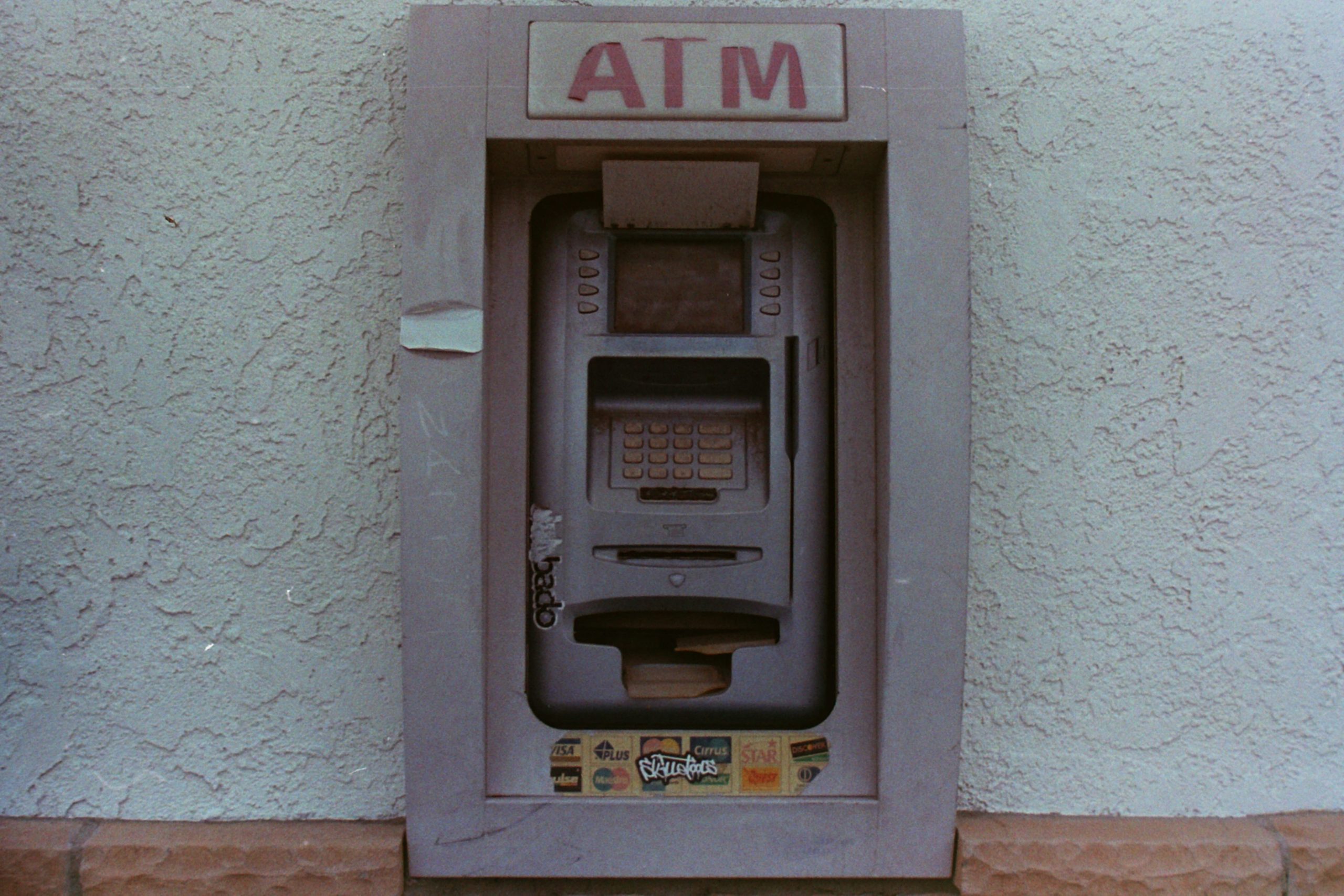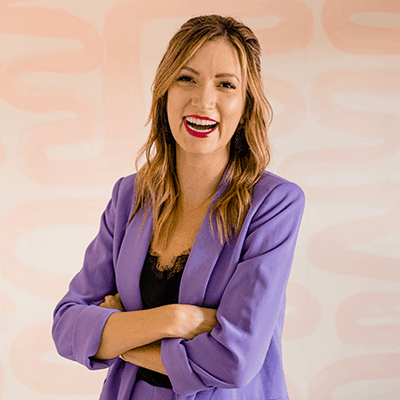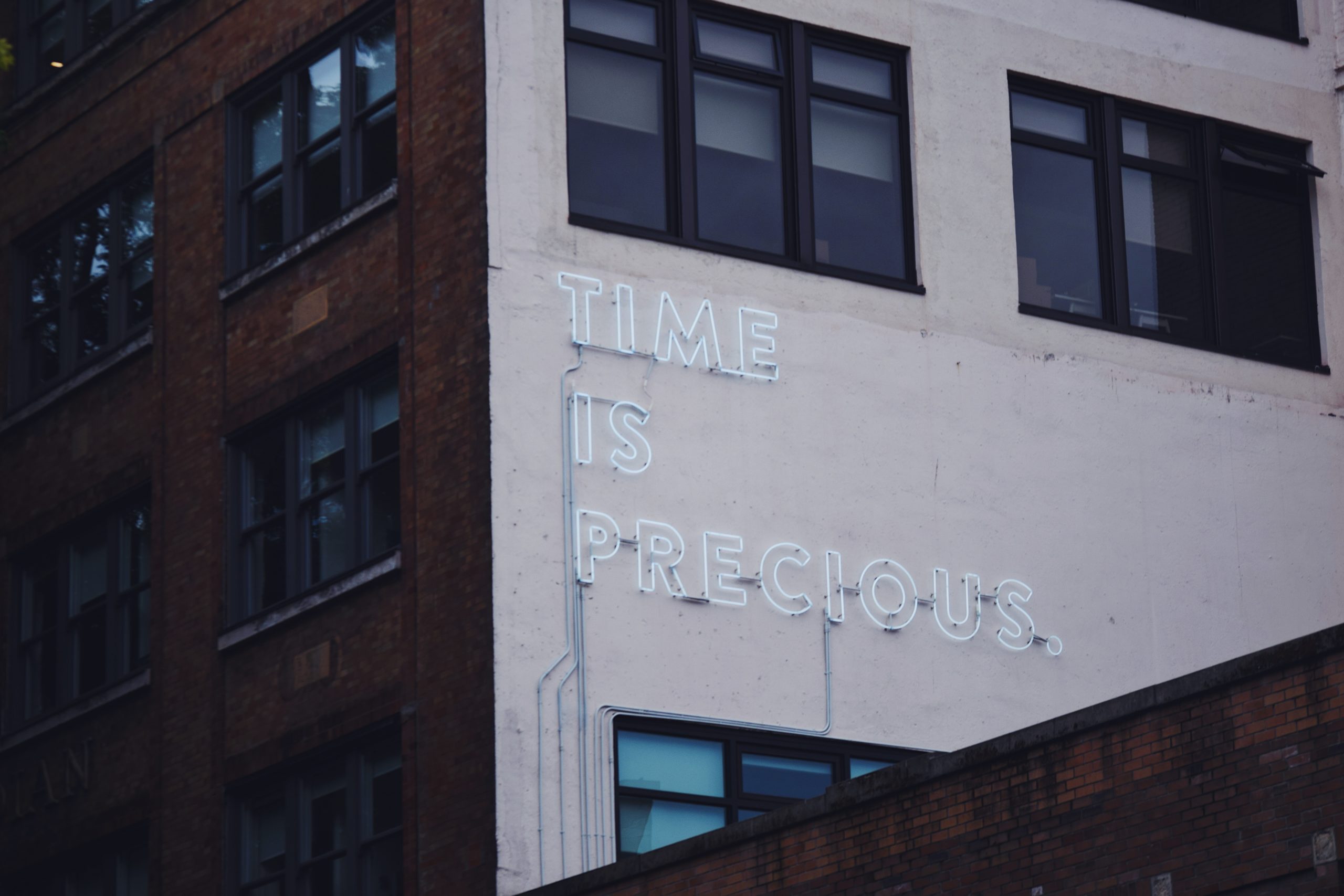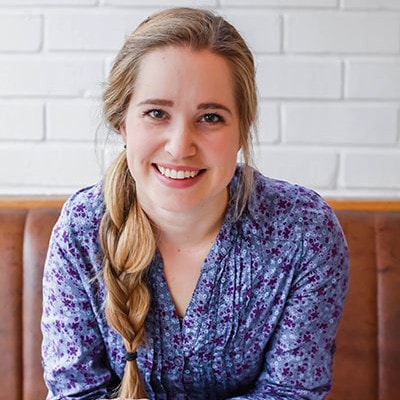Are you ready to start your own successful and profitable business? Today’s guest is Dorie Clark, an amazing woman you definitely want to get to know. Dorie is unlike most people. She started college at age 14 and graduated at 18 (!), and then went on to hold a bunch of different positions: non-profit executive, political campaign spokeswoman and even documentary filmmaker, to name a few.
For the past decade, Dorie’s been running her own marketing and consulting business, and she’s also authored several books including Stand Out (which was named the #1 leadership book of 2015 by Inc.), Reinventing You and her latest book, Entrepreneurial You.
In this thought-provoking conversation, Dorie and I talk about things like what it was like growing up as an LGBT person, as well as how she reinvented herself with so many different careers and why it’s pretty likely you’re probably overthinking your first business. 😉 She also reveals the steps and tactics to take if you want to start your own company.
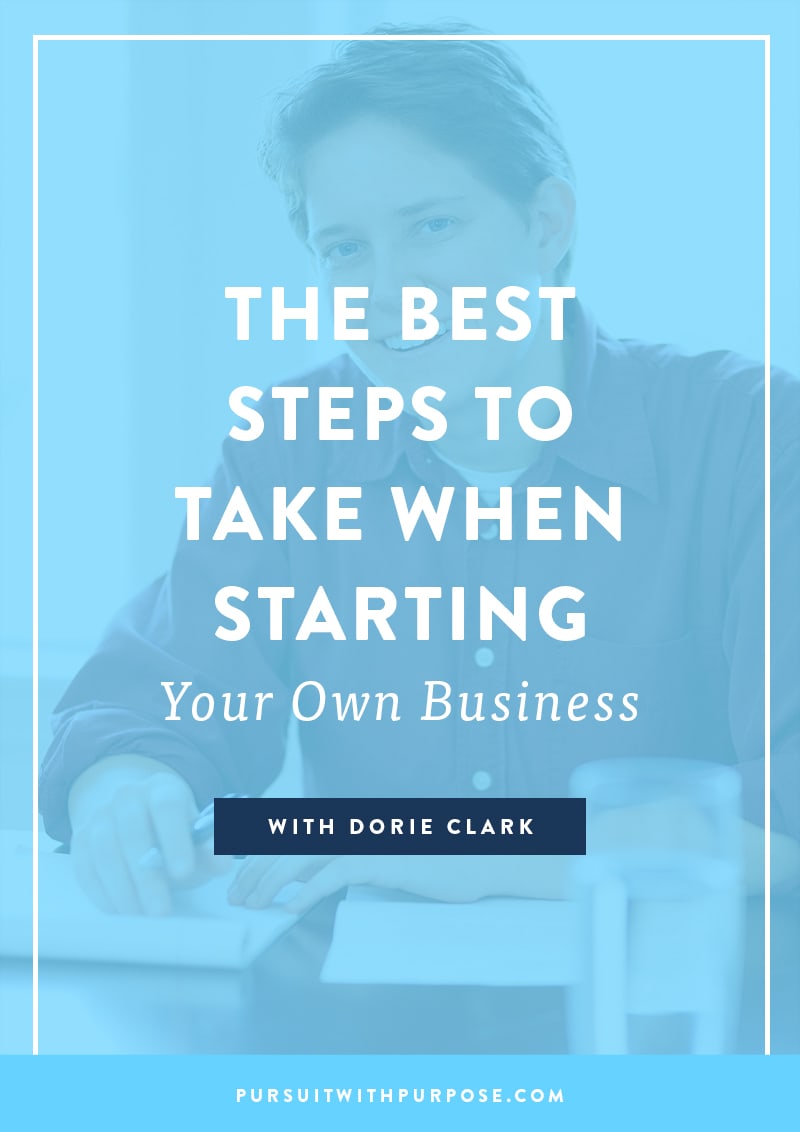
Check out the episode below:
In this episode, you’ll hear about things like…
- The right way to use a personal brand (and a convincing case for creating one in the first place).
- What we should be doing to reframe success and failure.
- The common threads Dorie believes tied each of her unique careers together – and which two celebrities she wanted to be a combination of.
- How to build your brand from the ground up, even if you don’t have a strong network starting out (hint: you have to play the long game).
- Email list sizes and what size list Dorie believes you need to have for success.
- The challenges Dorie faced when she launched her business 11 years ago, and the dramatic shifts she’s made along the way.
Links from the interview:
- Dorie’s Website
- Dorie’s 88 Question Self-Assessment
- Dorie’s Book, Stand Out
- Dorie’s Book, Reinventing You
- Dorie’s Book, Entrepreneurial You
- Todd Herman
- Jason Van Orden
- Michael Stelzner
- Jenny Blake
- Pursuit With Purpose: Episode 1 with Melyssa Griffin
What do you think?
I’d love to hear your thoughts on this episode. Do you feel like you’ve been overthinking your business? Leave a comment below and let’s chat. 🙂
Here’s how to subscribe + review
Want to be the first to know when new episodes are released? Click here to subscribe in iTunes!
Also, podcast reviews are pretty darn important to iTunes and the more reviews we receive, the more likely we’ll be able to get this podcast and message in front of more people (something about iTunes algorithms?). I’d be extremely grateful if you left a review right here letting me know your favorite part of this episode.
#PursuitWithPurpose
Loving the podcast? I encourage you to use the hashtag #PursuitWithPurpose to show our PWP tribe how you live your purpose everyday. Plus, you’ll get to sift through the hashtag to find other business owners who care about community and connectedness over competition and comparison. And I’ll be reposting some of my favorite images and stories, too. 🙂
Thank you for listening!
Transcript
Read the Interview Transcription HereNow in this conversation, Dorie and I talk about things like what it was like growing up as an LGBT person, why she reinvented herself with so many different careers, and why you are probably overthinking your first business, and the steps and tactics that Dorie recommends if you want to start your own company. Now Dorie is smart and interesting and compassionate. I can’t wait for you to learn from her. So let’s dive in.
Melyssa Griffin: Hey Dorie. Welcome to the show.
Dorie Clark: Melyssa, thanks for having me. It’s great to talk with you.
Melyssa Griffin: You too. So I want to just dive right in here and ask you some questions about kind of where you got started. So first, I want to know where did you grow up. Where are you from?
Dorie Clark: I grew up in the golf capital of the world, Pinehurst, North Carolina, which is a very small town maybe 90 minutes south of Raleigh Durham.
Melyssa Griffin: Is that right? Okay cool. So how did that kind of factor into your early life and you eventually starting your career? What was that time like for you?
Dorie Clark: It was influential for me to grow up in Pinehurst because I hated it so very much. I’m sure it has many virtues and I don’t really need to slag on people who are living there, because if you like golf for instance, it’s great and the weather is lovely. Especially when I was growing up there in the 1980s, I found it to be possibly the most culturally vacuous place in the entire world. It was just depressing to me as a kid and especially as a young gay kid. I just was like I have to get out of here. And so, it lit a fire under me to find ways of doing that. And so, even as a young teenager, I was highly strategic in coming up with different strategies. I had a plan A, plan B, and a plan C to extricate myself from Pinehurst, and was in fact able to do that. And so, I went to college when I was 14 and graduated when I was 18, and have just really worked to be able to have the autonomy – this is I guess part of the entrepreneurial imperative, but to have the autonomy to live in the places that I want to live and surround myself with the kind of people that I want to.
Melyssa Griffin: Yeah. So I love that story. I feel like there are a lot of people who grow up in really small towns and are fine with it, but there was something about you that grew up in a tiny town and you were like this is horrible, I want out, I want to do something bigger. What was different about you than other people who are seemingly fine with growing up in a small town?
Dorie Clark: Yeah. It’s a really good question. I think that probably my sexuality had a really big thing to do with it, because at the time, when I was a young teenager and realizing I was gay, there wasn’t the internet or I mean I guess there was the internet, but not for regular people. There were just no – there were no resources. There was no people. I was out to myself for more than a year before I literally had met another gay person. That’s the kind of isolation that I think people face less frequently now, but at the time, I felt it very acutely. And so, I realized that I needed to take action. I think for other people, they might have been more or less satisfied depending on their interests or whatever, but I think that was something that made it feel particularly urgent.
Melyssa Griffin: Right. That makes total sense. It’s like you just don’t see your identity represented where you live and you’re on this quest to find this place where you feel like you really belong.
Dorie Clark: Yeah, yeah exactly.
Melyssa Griffin: So after moving away from North Carolina, you ended up in a lot of different careers, really cool careers. I feel like being a presidential spokesperson, non-profit executive, and documentary filmmaker, I feel like these are so interesting. What do you feel tied each of these careers together for you?
Dorie Clark: Thank you. Well in kind of a technical sense, the things that I’ve always been interested in are things like reading and writing and the news, politics. Those were things that I cared about. I think that they have kind of provided a sub stratum for me. When I was a senior in college and I was trying to figure out what my career was going to be, and kind of going through that first moment of real searching, I remembered thinking very specifically. I was a little flummoxed because what I really wanted to do, didn’t have a super clear career path. It wasn’t like oh you could just go to a graduate program for it. What I really wanted to do was to somehow be a combination – and it’s kind of a funny combination of Tony Robbins and George Stephanopoulos. I figured if I could have a career that somehow blended that, that would be what would be really fun for me. Fortunately, I feel like I’ve kind of managed in some ways to create a pastiche like that, but it’s really like a trial and error process.
Melyssa Griffin: Yeah. It almost seems like – and I don’t know if you feel this way, but it almost seems like there’s an element of social justice that combines each of those things together or some kind of wanting to create change in the world. Do you feel like that ties those things together for you?
Dorie Clark: Yeah I do. I do. I mean one of my early career desires was to be a professional activist too. That was something that I was really into. When I was in college, one of my internships was at now the National Organization for Women in Washington. I just had the best time. It was so fun and so cool. I was really involved in campus advocacy. The less overtly I guess, I mean I do political commentary so I speak pretty frequently on Canadian television for instance, try to be a pundit and explain US politics which is kind of funny to have to try to explain that to Canadians. They’re just [inaudible 07:44]. I also went on to, of course, work in political campaigns like [inaudible 07:49] and presidential campaigns. So that’s something that I have cared about a lot, but even now with my work in the business world, I do see it in a lot of ways as having a social justice component even though I’m not leading with that flag. I think that it really undergirds things because for me, if you’re talking about something like personal brand for instance, that to me is really an equalizer. I think that fundamentally, it’s about okay, who tells your story, do you tell your story or do you let some other person do it, usually much more carelessly and thoughtlessly, and in this kind of half-hearted, like oh I guess that person’s… No one’s ever going to tell your story as well as you do. I think that if we don’t understand how the game is played or we just abnegate our responsibility to do that, then we lose out. And so, I think that one of the best ways to empower people – and I literally mean it as allowing them to empower themselves, is to give people the tools and knowledge to figure out how to do this, so that they don’t throw ignorance or laziness or whatever, just let other people take control. Because if you do that, you’re always going to lose and we’re always going to have the same existing power structure. So I do view it as giving people the tools hopefully necessary to make really good changes in their life.
Melyssa Griffin: I love that answer. I love that perspective on just personal branding not just being about kind of this egocentric thing, which I think sometimes people put it into that category of you have a website with your name which is actually what my website is, and your whole brand is about who you are, and making it more about you getting to write your own story. You getting to speak for yourself and allowing that to help other people speak for themselves too, to give them that permission to be themselves and to honor their story, and not have someone who doesn’t understand what it’s like to live in your shoes at all to speak for you. So I love that.
Dorie Clark: Thank you. I appreciate it.
Melyssa Griffin: Yeah. So you’ve been called an expert at self-reinvention based on the many, many careers that you’ve had over your lifetime. Why did you feel like you wanted to reinvent yourself so much?
Dorie Clark: Well the initial reinvention was purely involuntary because my starting point was – my first job after graduate school was being a political reporter. That actually checked a lot of the boxes. It was reading. It was writing. It was news. It was politics. It was a very reasonable career choice for myself and something that I enjoyed and I probably would have stayed with, but I came in at just the wrong moment for journalism. It was starting at that point, it was 2001, to contract very badly on this kind of now decade plus long downward spiral. And so, I got laid off after about a year on the job and I had to figure something else out. I couldn’t find another job in journalism. And so, that was what led me into politics. And then in politics, I probably would have stayed with that. If my candidates had won, it would have been very logical for me to continue working for them once they were in the administration, but unfortunately, all my candidates lost. So that wasn’t going to happen. I was loyal enough by that time that I had built up enough animosity that I wasn’t – it’s not like I was going to work necessarily for the people who beat them.
So then I went to running a non-profit. And so, for a couple of years, I ran a non-profit and it was actually through that, that very unexpectedly I had this kind of revelation which maybe is not so much of a revelation to other people, which is that running a non-profit is exactly the same thing as running a business. I just thought oh my gosh, I am now learning all these skills that I could apply and I could run my own business. I could do it with a lot less stress because instead of being responsible for an entire office of people, I would be responsible for me and I could probably make a lot more money doing it. It’s not to say I had these grandiose visions of my earning potential, it was that I was making so little at the non-profit, I’m like oh my God, I’d have to be an idiot not to be able to somehow make more money than this. So it seemed very worth it to me. So after two years running the non-profit, I left to start my own venture.
Melyssa Griffin: So I feel like with your story, a lot of people have this kind of mentality where they think the first thing has to be the last thing. The first job they pick, the first career path they go on, has to be the one that’s going to fulfill them for the rest of their life. You’re kind of a testament to picking something, kind of going in the direction of your passion and interest, and letting that guide you to all these different paths and careers that eventually line up into this thing that you love and you excel at, and completely succeed with. So what are your thoughts on that mentality, of just people who think I’ve got to find the right career when I’m 18 years old or whatever it is, or I’ve got to start my first business and that has to be the one that I do for the rest of my life?
What are your thoughts on that mentality?
Dorie Clark: I don’t even know why people would think that. We have a very obvious analog which is oh the person I date who’s like my first boyfriend or girlfriend in high school, clearly has to be the person that I marry. I mean who does that? We all may be know like one person who ended up married to their high school sweetheart, but that is literally it for almost every other human being. In order to figure out who is right for you, you need to date a lot of people, you need to try the nerdy person and the bad boy or the bad girl or whatever, and just see where you fit and what ends up being comfortable. You only learn that through iteration. What can seem really good on paper is not necessarily good in practice based on what you need. And so, I say as someone who is still single, sometimes it takes a while. You need to put a lot of care into choosing. I think that people put so much pressure on themselves to get it right or something like that, but everything is an experiment. I mean if we treat things as pilots rather than failures, that’s the most important thing we can do. I mean I think all the buzz that you hear in Silicon Valley, in the lean startup methodology and that kind of thing, it becomes a little bit of an entrepreneurial cliché like my minimum viable product… all these sort of bros* are into throwing the terminology around. I think if we’re really just trying to take a life lesson from it, there is something really profound about it which is that if we’re viewing everything as black and white, if we’re viewing it as well, it’s either a success or a failure. That’s pretty depressing because you’re going to fail way more than you succeed, just statistically that’s life. If we can instead reframe it and say you know what, I’m going to just try out a lot of things, I’m going to test it, I’m going to make small tests so that I don’t lose everything because of one failed experiment, and then I’m just going to double down on what seems to be working. If that’s our approach to life which is at the foundational level of the lean startup methodology, then I think that’s a brilliant way to live our lives.
Melyssa Griffin: I agree. I think like what you’re saying is that the goal isn’t success and the worst thing that could happen isn’t failure, it’s that the goal is really just experimenting and finding these different things that you enjoy and that you’re skilled at. And then the worst thing is just maybe not even getting started at all because that means that you’re not having success or failure, you’re just being completely stagnant.
Dorie Clark: Yeah exactly, exactly. Yeah it’s just a process of trying things out. I mean we’re not omniscient*. And also, even if you have a really good plan, there’s a lot of things that we can’t control. There’s societal circumstances. There’s what other people are doing. There’s trends… You just can’t know all of the variables. We are not in a position to be able to do that. And so, even if something really is a great idea and even if you really are uniquely qualified to execute on it, it may not be the right moment. And so, if you spend all your time mapping it out in your head and it seems like it should be perfect and then it’s not, you’re going to question yourself, you’re going to beat yourself up, you’re going to think oh I suck. It really might not be you. So if you instead are placing small bets, then it enables you to capture sometimes the ineffable factors like luck that can really put the wind at your back.
Melyssa Griffin: I totally agree. So I feel like that’s the perfect segue into talking about your latest book, “Entrepreneurial You”. So can you tell us a little bit about the premise of the book and why you decided to write something on this topic?
Dorie Clark: Yes, absolutely. So my new book, “Entrepreneurial You”, I’m really excited about it because in a lot of ways, I view it as the culmination of a trilogy that I’ve been working on. The first one, “Reinventing You” is of course about professional reinvention and about getting yourself to the place that you want to be in your career, just making sure you’re doing the right thing, that you’re doing something that you care about. The next book, “Stand Out” is about how to become a recognized expert in your field. Once you’ve found the thing you want to do, how do you get others to really take note and break through all the noise that’s out there? But then finally, I realized in the course of writing “Stand Out” and speaking about it, there is a third piece which is important and possibly the most important thing, which is that we all – I am 100% sure that every listener knows at least somebody, probably a few people that are really talented, they are really smart, they’re really good, and yet they are struggling to make money at what they do. That is because it’s really an art form, learning how to be good at something versus learning how to actually make money and make a sustainable living from it. And so, I wanted to create a book, “Entrepreneurial You” that really breaks down the mystique about that. And so, I interviewed 50 plus very successful entrepreneurs who are making great living, six, seven, eight figures with – we’re not talking about 1000 employee businesses, these are very lean solo businesses or very small businesses where the margins are great. They have figured out how to do it. And so, I wanted to understand what they were up to and really just pull the curtain back so that other people could see more about these business models and learn how to apply them in their own lives.
Melyssa Griffin: Right. So from some of the interviews that you did of successful entrepreneurs in this book, what are some of the ones that stand out to you?
Dorie Clark: Well let’s talk about some of your friends, Melyssa. So we have some cool people that I interviewed who I know that you know as well. One story that I really love from “Entrepreneurial You” is actually from Todd Herman. Todd now runs a successful – he’s an executive coach and he runs a program called the “90 Day Year” online course that has been very popular. What I love – I talk to him essentially about his kind of origin story; how he got started. The part that I think is great is that Todd started in a place that many people find themselves, which is that they are not living in some dense urban environment. They might be out in some remote place. They don’t have a lot of contacts. It’s not like they can just call up their friend who’s the president of IBM and get a contract. They don’t know the people that they ultimately know that they need to know. And so, what do you do if you’re in that situation, if you’re essentially starting from zero and you’re just a guy or gal with an idea and some talents, but you don’t have the network? That is a question that a lot of us face. So Todd was living in Western Canada which is where he’s from, and he loved sports coaching. That was how he started. He was doing youth sports coaching. He started doing some coaching around the mental game, like mental toughness for youth athletes. Okay that’s great, but how is he going to get clients?
And so, he realized – many people have said okay well you should speak in order to get clients. That makes sense, he bought into that, but there’s still a problem especially in his business which is that it’s not like teenagers are going to pay him for this service. Teenagers do not have money or at least if they have money, they’re spending it on movies or sneakers or something like that. They’re not going to be paying a mental toughness coach. Parents are going to pay. And so, he had to really go that extra level and say well how do I reach them. And so, I love the solution that he came up with. He just doubled down on it. He said he gave 60 plus talks in a period of about 90 days. He was just a maniac doing it. He started with a few organizations that he already knew and he had contacts, but he would give the talks for free but he had one stipulation. That was – he said, “Alright, I’ll come speak to your teams for free, but what you need to do is guarantee that for each kid, at least one parent will be there.” Because he knew the whole thing would be wasted if there weren’t buyers in the room. And so, the parents were there. So one way he was able to seed* it for future talks, was he would say to the audience, the parents, “Hey, if you have other kids who are on other teams, let me know and I’d be glad to speak to them as well.” Because it was free, it was just totally value added. It was very easy for the parents to say yes and to recommend him.
The interesting thing was that of course, in addition to getting the work that he was hoping to get which is youth coaching, he also got something else. The parents who were in the audience really resonated with his message rather unexpectedly. And so, within this 90 day period as he was getting started, it turned out that he had 2 very special people in the audience. This is even – this is not like he’s in New York City or San Francisco, he’s in Western Canada. One person was an employee of the Canadian government and another person was an executive with an NHL team, a National Hockey League team. Both of them said this is so great, our organization needs this. And so, he hadn’t even expected this would happen but he got hired by the Canadian government and by the NHL or one of the NHL teams to do coaching for them. So he immediately was able to expand his business into new areas and have these marquee clients, just starting out based on a savvy free marketing strategy that he did. That’s something that we can all learn from.
Melyssa Griffin: Yeah, that’s an amazing story. I love how Todd approaches business in this connected way. Even now, seeing the way that he runs his business, I feel like connecting with people and building relationships is still one of those core values that he has. So I love that you included that in that interview with him. That’s really inspiring. Were there any other interviews or stories where you personally were like fist bumping, you were like this speaks to me in a deep way?
Dorie Clark: Well one of the – I had* in the course of writing “Entrepreneurial You”, I actually did have sort of a secret agenda for myself which is that I really wanted to learn this stuff. I was making a good living as a consultant. I’ve been self-employed for 11 years now, so I had managed to figure out how to build a good reliably six figure business, but I knew that there were things I wasn’t doing. I knew that there were ways that if I was smart, I could really take my business to the next level and I wanted to understand what they were. And so, writing and researching the book was really an opportunity for me to get a chance to surround myself with some of the best minds out there, and be able to ask them questions, and just sort of do the pick your brain thing in a way that was not taking from people. Because oh my God, every entrepreneur as you know, I think just about everybody hates it, being approached “oh could I pick your brain…” It’s this kind of constant needy approach that you get so many times. And of course, the person asking doesn’t realize, but when you’re on the other end of it and 50 people a week are asking you, you just can’t even deal after a while. Instead, writing the book, I realized this is a chance to really have kind of a personal tutorial, but in a way that is adding real value to the people I’m interviewing because they’re going to be in this book that’s coming out from Harvard Business Review Press, and for probably the next couple of years, I am going to be doing webinars, doing talks, sharing their stories and hopefully giving them a greater platform as well.
That’s how I was able to get in with the interviews, but what I was especially hoping to learn, for a few years, I’ve been interested in exploring online courses. Of course, this is an area that you know a lot about. I thought I should be doing more with this. And so, I had some great interviews, really trying to understand how this process would work, how do you survey your audience, how do you do a pilot, what do the sequences look like, how do you put things out there. And so, I spent January and February of 2016 doing the interviews for this book. I really spent the rest of the year, the rest of 2016 a) writing the book, but b) implementing these strategies so that I could test them out myself and see if they worked and how they worked, and be able to share those experiences in the book as well. In addition to relating interviews with the experts, I also share with the reader my own adventures, some of which worked and some of which didn’t, in terms of ways to develop different multiple revenue streams in my business. So I’m pleased to report that one of the things that actually did work really well was immersing myself in online course creation. And so, I created an online course recognized expert last year, about 150 people have been through it now. Over the course of 2016, I was able to earn close to an additional $200,000 that year just on the strength of new business lines that I developed 100% as a result of these interviews and the things that I learned from the experts that I profiled in “Entrepreneurial You”.
Melyssa Griffin: I’m so excited to read this book. I love that you didn’t just interview people, but you interviewed them and then took what they told you to do and actually did it. Now you have this case study for your readers to show them what it’s actually like to implement this stuff. So that’s really exciting. I can’t wait to check that out. Inside of the book…
Dorie Clark: Thank you.
Melyssa Griffin: Yeah. Inside of the book, what are some of the major concepts or steps involved that people should know if they want to start their own business?
Dorie Clark: Well, so in “Entrepreneurial You”, I really try to break down different revenue streams for people as kind of a smorgasbord. Because of course, not everyone can or should or wants to have ten different revenue streams. I mean you’re probably not going to have one person who does coaching and online courses and podcasts and online communities and conferences and… Really, for each person, it’s a question of figuring out what are you most interested in and what is the optimal mix for your business. So I wanted to really lay it out, almost as a kind of choose your own adventure for people. Broadly speaking, if we look at kind of the big picture of how to monetize effectively, what I came to realize is that fundamentally, it’s kind of this three step process of developing multiple income streams and becoming more entrepreneurial in terms of monetizing your expertise. This is building trust with your readers. It’s going deep and then it is leveraging your knowledge. I’ll explain what I mean. I think at the place where a lot of people get to derailed is that so much of our culture is just driving people to the quick hit*. It’s all about the third part, leveraging your knowledge. And so, you get this narrative where some people are make easy money online… That either turns the head of some people who think oh well clearly it’s easy, that’s how I’m going to – I’m just going to go do that and make a million dollars, or you get some people that are sort of savvier consumers and they know that that can’t really happen. And so, they look at that and they’re like oh well, all this online business stuff must be crap. It must all be fake because clearly people are not going to make millions of dollars overnight, so I’m just going to ignore this because it must all be hype.
Of course, as with most things, the truth is in the middle. You’re not going to make millions of dollars overnight, but also, there really is something there. For a long time, I really didn’t – I had a traditional business doing marketing strategy consulting. I did not get on the bandwagon of online marketing or online business. That is something that I realized I sort of missed out on. I just kind of wrote it off as the realm of hypesters, but it’s not. There’s real legitimate value there for people who are looking and who do it with integrity. And so, I think the key is those first two pieces, getting them lined up. So one is building trust with your audience, which really comes from things like this, Melyssa, it’s giving away free content. It’s sharing yourself. It could be blogging or podcast or speaking or whatever, but you need to develop a trusting enough relationship so that people would want to buy something from you, that they respect you enough. You’re not going to get that from some cold Facebook ad. You do it because over time, people learn that they can trust you. That’s the basis of everything.
In the second piece, going deep, is that again, the people who are looking for short cuts immediately just I’ll come up with something and then sell it. The truth is if you really want a sustainable career, it comes from building an audience that you understand intimately. You need to know who they are. You need to know what they value, what they care about, what their challenges are. When you do that, when you live and breathe with them, you understand what’s going to be valuable and are able to be in tune with it so that when you offer something – it’s not like you have to keep vlogging it like buy my thing, buy my thing. Instead, they’re going to be like oh thank God Melyssa, that you’re finally offering this. I have been wanting this. This is exactly what I need. It makes the sales process so much easier and faster. And so when you have – and oftentimes, going deep, it’s about market research. It’s also about working hands on in some ways with people, through coaching or consulting, whether that’s formal or informal. It’s really getting to know your audience. Once you do that, then you are in a position where once you turn on the spigot, once you start to accelerate and start to leverage, you’re really able to gain traction rapidly.
Melyssa Griffin: I love both of those. I love that framework because I feel like they’re both grounded in the sense of community, where it’s not just create a product and hope people find it, and it’s not just put something out there to make money. It’s that you’re building trust with real people out there in the world and you’re adding value, you’re getting to know them, you’re creating something that impacts their life in a meaningful way. So I completely resonate with that. I love that framework. What are some ways you feel like you’ve built trust with your own audience that have worked well for you?
Dorie Clark: Well for me, I used to be of course a print reporter, and so writing has always been kind of my go to. It’s something that I like doing, that I know how to do pretty well and pretty rapidly. And so, I spent years, I mean too long – let’s be honest, I should have done this sooner, but nonetheless, I spent years writing for free and just creating content that showed people that I knew what I was talking about, and hopefully shared enough of a voice that they were able to say oh I like how this person approaches things. I started getting really serious about blogging in 2010, that was when I kind of dove in, in a big way. Between then and 2000 – it was actually 2015, 2016, I was not offering anything direct to consumer except for books. I was giving speeches. Companies could hire me for that. I was doing corporate consulting. That was really about it. And so, it was only 2015 or even more to the point, 2016 where I started creating things that individuals actually could buy, participating in the recognized expert course or some other online courses that I did, or doing workshops or mastermind days – that kind of thing. Retrospectively, I should have started a little bit sooner with that. I think one peril, is that sometimes people delay it too long. If you had to choose, it’s probably better to do it that way than the other way, which is hitting people for sales before you’ve built any trust.
So for me, it’s literally an archive of hundreds, about 500 free articles that I’ve written for places like Forbes and the Harvard Business Review and Entrepreneur. I’ve given literally hundreds of speeches. In 2015, it was 74 talks. Last year, it was 37 talks. 2014, it was 61. 2013, it was 59. For all these places, I’m speaking at conferences, associations. So by this point, [inaudible 34:15] and there’s a fair share of people that have seen you either live or they’ve read your articles. And so, that’s really how I’ve concentrated on building trust. What’s been the principal way that you’ve done it?
Melyssa Griffin: Well first, I love that you’ve tapped into so many different areas where people can trust you, with speaking and writing and being on podcasts [inaudible 34:35]. I was floored when I was like even just looking for you on the internet and found so many different places that you exist. For me, I feel like I’ve built trust kind of in a similar way, where I started a blog about four years ago. That was really just kind of this creative outlet where I wanted to create a community. I wanted to provide value for people. I didn’t really sell anything for a long time either. It seems like kind of a theme here. Probably also, for way too long, and was just focused on creating the sense of community. And so, that was largely through my blog, now through my podcast. I’ve had different Facebook groups over the years as well. I’ve also done some videos and offer a lot of free trainings. So those are the primary ways that I see as how I’ve built trust. Like you said, it’s very much just focused on how do I serve my community, how do I add value in a way that’s not necessarily asking for anything in return, and is really just there to help people in some way. And then maybe in the future when I’ve got a course or a book or something that might benefit these people, then being able to introduce them to those things at that time once that trust has been built like you said. So I love that principle.
Dorie Clark: Yeah that’s great. It sounds like you’re really exemplifying that.
Melyssa Griffin: So we both waited it sounds like too long to really introduce a product to these people that we’ve built trust with. Do you feel like it needs to take that long? Can people – like if somebody is listening, they want to start their own business, do they have to wait a year or two to write tons of content and then introduce a product? What’s kind of the formula here?
Dorie Clark: Well clearly of course there’s not one right answer, but I did in “Entrepreneurial You” try to lay out some different possibilities. And so, I think these are interesting ways of looking at it. So one answer that I got was from Jason Van Orden, who I think you might also know, Jason from Internet Business Mastery, he believes that if you – here’s the important thing. You need to be consciously creating an opt in list that is targeted. So meaning, it can’t just be this sort of willy nilly like oh it’s some people, it needs to be a very clearly defined list of people who are interested in something like oh I don’t know – they want to get better at internet marketing or whatever your niche is. If you have a good system, good lead magnet or something that’s attracting people, and so you can be pretty sure that your audience is targeted, that you know what they care about. He says that if you have an email list of a 1000 people and you are not selling something to them, then that’s leaving money on the table. Even if you have a 1000 people, you can and should do that. Plenty of people can make money if it’s a highly targeted list from even less than that. So that’s one threshold.
Now if you are wanting to look at a slightly different angle – I also interviewed a guy named Michael Stelzner. Michael is the head of something called Social Media Marketing World, which is a big conference that takes place every year in San Diego in the social media space. He has made money over the years in a lot of different ways from the conference. Also, he was one of the early pioneers in virtual summits, kind of paid virtual summits. He very deliberately for himself, set out early on to create an email list of 10,000, because it was his personal belief that if he had 10,000 people who were interested in social media on his email list that that would be a sufficient tripwire for him to be able to make a good living from it. I mean the numbers vary, but let’s pretend that it’s somewhere in between there and thinking about that. Now if we overlay that on terms of time, how long does it take you to get a list of that size? Well it’s not going to be overnight. Presumably, it’ll be at least a few months before you get your first thousand names. Particularly if you decide that you want to start at the higher end of a number of people in order to monetize. It might be a while. It might even be a year or two.
That is part of why something that I advocate, is for people who are thinking about entrepreneurship, it’s – I don’t think it’s a good idea for people to just quit everything and just dive in, and say I’m going to do it sink or swim. This is where you really have an advantage if you do have a day job or some other thing that you’re doing. This is how you transition into entrepreneurship. That year or two is going to pass no matter what. And so, if you can spend it strategically building up your portfolio and building up your side income streams, then it allows you to really make the transition in a very seamless way. In fact, you don’t even have to make a transition. One of the arguments that I have in “Entrepreneurial You” is that even if you do have a day job, it is a good idea and in fact, very advisable for you to create an entrepreneurial side venture. Even if you love your job, even if you want to stay in your job forever, this is just a good insurance policy for yourself in a way of learning new skills and making new connections. And so, taking the time to build that up. If you have kind of a longer runway for yourself, which having a day job or at least some form of existing income stream gives you, that is a lot better because it enables you to make decisions that are good for the long term of your business, not a short term oh my God how am I going to pay my rent. I need to do something, oh I’ll just sell people something. Whenever you shift into short term needy thinking, you really run the risk of damaging things over the long term.
Melyssa Griffin: Yeah I agree. I like the idea also that you brought up of side hustles. I think that’s something that people in corporate careers can totally jump on right now. Because I feel like I’ve talked to a lot of friends, my partner, who are in corporate jobs, but really want to have an entrepreneurial business and kind of think of it as this either or scenario, where it’s like I either have to do this corporate thing or I have to quit everything and do this risky entrepreneurial business that who knows if it’s going to work out. There really is this happy medium where you can get started now with the tools that you have, with the knowledge that you have, and start working towards that vision without it being this super scary dive in. Hopefully you learn how to swim on the way kind of thing, and eventually make it work out so it’s not this risky thing that you’re jumping into. So I love that you’re making the case for that too.
So after working in so many other careers for so long and now having your own business for the past 11 years, what were some of the challenges that you had when you were starting your business?
Dorie Clark: Well I think one of the big challenges, which I think a lot of new entrepreneurs have, is at a very basic level just defining what your business is going to be. I mean I really want to make clear that the reinventions that I’ve done, didn’t stop with me having different careers; starting as a journalist and then going into politics, and then running a non-profit, and then finally being an entrepreneur. Even once I started my business, there is an iteration process. The other day I was talking with somebody, and she asked, “How did you decide that you wanted to do this business and focus it on reinvention and…?” I said the first thing you need to know is that I didn’t decide that. This was not a conscious decision. When I started my business, I originally thought that what I would do was political consulting because that was the job that I had had previously, that I thought well you know – I mean there’s a clear path for consultants there. I knew that I could be good at that, so I kind of hung my shingle as a political consultant. Unfortunately, I just I wasn’t getting any clients at the time doing it. Partly it was where we were in the electoral cycle, but clients were hard to come by.
And so, conversely though, as soon as I was working for myself, I had a number of friends who worked at non-profits or like in government organizations, and they were reaching out. They were saying, “Oh, we want to hire you. We want to hire you.” And of course, I was in the nascent stages of my business, I was not going to say no. And so, I’m like well okay I guess I’ll do that. So the first pivot, within the first couple months, was away from being a political consultant and more for being a kind of general communications consultant. And then yet another shift happened, maybe within the first couple of years of the business, which is that early on, what people mostly hired me for was what I would call PR consulting. That was something that, again, I knew and I had experience in from my time working in politics. Essentially when you’re a press secretary or communications person, you are –yes you’re developing strategy, but you are also executing it in terms of organizing the press conference, or talking to reporters, or pitching coverage, or helping to write the op-eds – that kind of thing. And so, I would do that. I realized – I mean this is something where I’m kind of proud of myself for at least. I’m not super great at predicting future trends, but I’m at least good at noticing when things are happening around me pretty fast. This was 2007, 2008. And so, trend number one, all the journalists were getting fired, and the so-called news hole – the amount of space in newspapers for the news was declining precipitously because the advertising was going elsewhere. And then trend number two, social media was rising and that was a kind of a growth area. And so, I shifted over from essentially being a PR consultant to being a “marketing strategy” consultant, because I realized the companies that were hiring me, they had in their heads – I mean perhaps not unreasonably, the achievements that they could get very easily like five years ago. So whoever their previous PR consultant was, with a snap of their fingers, could get them usually front page coverage in the regional section of the paper. That’s pretty easy when there’s a lot of space in the newspaper and there’s a lot of reporters who are looking for stories, but five years later, there weren’t any reporters. Everybody had been laid off and the newspaper was half the size. So it was extremely hard to get coverage.
And so, I had these clients that were getting a little pissy with me. They were basically sort of taking this attitude like you’re not doing your job, why aren’t you getting us coverage. I’m like people, the paper barely exists anymore. Do you want coverage? Okay, do you want to all be naked and go march down Main Street? Because maybe then, but otherwise, your press conference is not going to cut it. When you say something like that, they don’t get it that you’re really trying to level with them. They think you’re somehow being lazy. I just didn’t want to be in a business where people thought I was being lazy, and I was actually working incredibly hard. And so, I decided I needed to reposition myself to do the marketing strategy rather than PR execution, because I just thought oh man, this is a losing battle. They are never going to be satisfied. So I did a lot of pivots early on in my business even after I started it.
Melyssa Griffin: Right. So it’s almost like seeing what people needed was not what they thought they needed, and then giving them what they needed. Does that make any sense?
Dorie Clark: Yeah, yeah absolutely.
Melyssa Griffin: Okay cool. Yeah I love that. I love that. I feel like that makes a lot of sense why you would pivot into what you’re doing now and kind of the difficulties in terms of getting that started. So I have one last question for you that I like to ask all of my guests. That is: what do you feel like people or entrepreneurs could do to live more meaningful and fulfilled lives?
Dorie Clark: Yeah, I love it. I was a philosophy major, so I love the profound questions, Melyssa. I think that one of the things that I found useful in writing “Entrepreneurial You” – this is actually the last chapter of the book. This is how I wrap it up, is with a discussion about really just what the point is of the work that you’re doing, and trying to understand and get clear on it. Because there is a kind of bias or prejudice against – at least in certain business circles, against the concept of a “lifestyle” business. The cool thing is to start a business that has X number of employees or X, a million dollars in revenue. It’s just the bigger, the better. You’re more of a baller if you make more money, have more employees, run this big thing. I can understand why of course. I mean that is how our society generally measures success. The truth is that can often lead to a lot unhappiness. I mean certainly it’s not easy, so nobody would say it’s easy work, but it can be fulfilling if that’s what you want to do. I think in so many cases, we just take on a societal default of what we should want. Being an entrepreneur in many ways of course, is about forging our own path and creating our own vision, but we also kind of easily can fall prey to the entrepreneurial world vision of what is the cool thing to do. Oh well everybody is growing these big companies or everybody is doing a launch like this and it has to bring in this much money or whatever. I think that if we can take a little bit of a step back and just understand really what is the point, we can sometimes save ourselves a lot of heartache.
One of the people that I profile on “Entrepreneurial You” is a good friend of mine in New York, Jenny Blake. She talked with me about some of the things that matter to her. She has built an amazing life for herself. She knocks off work at two or three every day. She takes yoga classes. I mean it’s the kind of life that a lot of people would be like wow that’s incredible. She’s making six figures. She’s not making seven figures. She says, “You know what, of course I’d like to make a million dollars just like everybody else, but I look at what would really be necessary for me to make a million dollars a year. I think I don’t really want to trade that. I don’t really want to do that.” Instead she’s got her daily yoga. She’s able – multiple times she’s done this, take a month off in the winter and go work in Bali. Just understanding the thing that really matters to you is I think so critical in this process to being able to create a career that you really want and that is worth it in the end. To that end, I’ll actually just mention a free resource that I created. It’s an 88 question “Entrepreneurial You” self-assessment that actually walks people through the process of how to think about different income streams or what could work in their business, and also to get clear about what the purpose is that they’re aiming at in their business. And so, if folks would like to get that for free, it’s at dorieclark.com/entrepreneur.
Melyssa Griffin: Amazing, amazing. I’m so glad that you brought that up. That’s literally the reason I started this podcast. If anyone’s curious of hearing my own journey about that, you can hear that in episode one. I had that exact experience of just kind of forgetting the point of things and really succumbing to the rat race and creating a business that looked good on the outside, but didn’t feel good on the inside, and didn’t feel like I was doing something meaningful. Really making that shift and coming back to a place of purpose, and like Jenny, finding routines and habits and things that fulfilled my life along with running a successful business and having that be part of my identity too. I love that you brought that up. I think it’s so important as we create businesses and as becoming an entrepreneur is more and more popular, and small businesses are becoming more of the norm in our society, that we don’t just do it for the money but we do it for the purpose and having a point to everything too. So thank you so much for bringing that up and saying that. Now with your book…
Dorie Clark: Yeah, thank you Melyssa.
Melyssa Griffin: Where can people go to learn more about “Entrepreneurial You”, to buy the book and to just learn more about the amazing Dorie Clark.
Dorie Clark: Well thank you. So the new book, “Entrepreneurial You” is available at Amazon, Barnes and Noble, smart, savvy independent bookstores. If folks would like to learn more in general, they can get the free “Entrepreneurial You” self-assessment, and also get access – we talked earlier about all the blogging. I have more than 500 [inaudible 51:53] places like Forbes and the Harvard Business Review. Those are all available at dorieclark.com
Melyssa Griffin: Amazing. Thank you so much Dorie. It was such a pleasure to chat with you. I can’t wait to read your book.
Dorie Clark: Thank you so much, Melyssa. Great talking with you.
